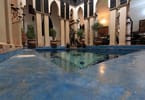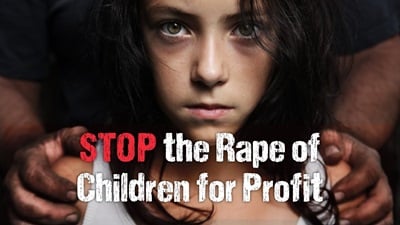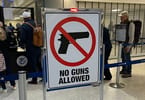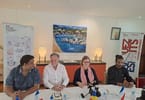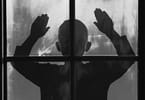AMMAN, Jordan (eTN) – Controversial remarks by Pope Benedict XVI about Islam and Prophet Mohammad in 2006 could catch up with him during his May visit to the Mideast.
Nearly a month ahead of the pope’s highly anticipated visit, emotions are already high among leaders of the Muslim community in the desert kingdom of Jordan.
Islamist leaders have said they “do not welcome the Pontiff to the kingdom,” and urged him to reconsider his position on the fastest growing religion in the world.
They expressed doubt over the outcome of the “mission of peace,” the first for Benedict since he took the helm of the Catholic Church in April 2005.
Leaders of the Muslim Brotherhood movement and its political arm said the pope must define his stance on Islam and Prophet Mohammed ahead of his arrival, all the more so since the German-born Pope has labeled Islam a religion of violence.
They also said the remarks made by the leader of more than a billion Roman Catholics had left scars that would require great effort on the part of the Vatican to eradicate, if ever.
The spokesperson of the Islamic Action Front (IAF), the political wing of the Muslim Brotherhood, said the visit meant little, if anything, to him.
“The pope hates Islam and Muslims. I do not expect anything from his visit,” said Rheil Gharaybeh, who is also the deputy secretary general of the IAF, the most influential political party in the kingdom.
The pope is scheduled to arrive in Jordan on May 8 at the start of a tour of the region that will also take him to Israel and the Palestinian territories to spread the spirit of peace in a region ravaged by conflicts for more than six decades.
But Gharaybeh and other Islamist leaders expect the pope to offer little sympathy to the Palestinians.
“His position on the Gaza War was shameful, after failing to condemn the genocide by Israel on innocent civilians,” said Gharaybeh.
“The pope is not welcome in the kingdom,” he added.
The over-all leader of the Muslim Brotherhood, Hamam Said, was equally vocal, saying the Pope had “committed a lot of stupid actions since his election to the papacy in 2005.”
He said the pope must define his position regarding Islam, referring to a 2006 lecture the pope gave in Germany in which he said the teachings of Prophet Mohammed were “evil and inhuman.”
During a speech at the University of Regensburg, Germany on September 12, 2006, the pope quoted a conversation between Byzantine emperor Manuel II Paleologus and an educated Persian, during which he blasted Prophet Mohammed and Islam as a religion of violence.
“Show me just what Mohammed brought that was new, and there you will find things only evil and inhuman, such as his command to spread by the sword the faith he preached,” the pope quoted the emperor as saying.
The pope’s remarks inflamed the emotions of millions of Muslims across the globe, with the ruling party in Turkey linking the pontiff to Hitler and Mussolini and accusing him of reviving the mentality of the Crusades.
Pakistan’s legislature condemned the remarks, Lebanon’s top Shi’ite cleric demanded an apology, and churches were burned in the West Bank.
In light of worldwide condemnation, the pope offered words of apology for his remarks, but Islamist leaders say his position on Islam must be made public and he must have a clear stance regarding the political situation in the region.
President of the Muslim Brotherhood Shurah council, Abdul Latif Arabiat, said the pope was “welcome in the country of Islam, but he must send a clear message to the hard-line government of Israel,” referring to the right-wing cabinet of Prime Minister Binyamin Netanyahu, which includes controversial Foreign Minister Avigdor Lieberman, known for his anti-Arab sentiments.
“The visit should not be seen as a vindication of Israel and the Zionist movement from their war crimes in Gaza,” said Arabiat.
Earlier this year, a government-run human rights center sent the pope a letter urging him to cancel his scheduled visit to Israel in response to “the genocide” committed by Israel in Gaza.
“If the pope goes to Israel, it will be as if he is blessing its actions in Gaza, particularly as hundreds of civilians died in the attacks, including women and children,” Muhyiddine Touq, head of the government-funded National Centre for Human Rights wrote in the letter, delivered to representatives of the Vatican in
Amman.
“We respectfully request Your Holiness to call-off your intended visit to Israel next May. Such a gesture by your high moral authority will certainly send a loud and an unambiguous message to set free the Palestinian people from their captivity which has been going on since the year 1967,” said the letter.
During his visit to the kingdom, Pope Benedict XVI is scheduled to meet with Muslim leaders and to discuss issues of mutual concern, including interfaith dialogue, according to Jordanian officials familiar with the visit.
The pope will meet Muslim scholars at King Hussein Mosque in downtown Amman to discuss recent developments in the region amid dwindling hope of a breakthrough in peace talks between the Palestinians and Israel.
He will also meet King Abdullah and Queen Rania before embarking on a tour of the kingdom to visit churches. At Mount Nevo, he will deliver a speech from the place where prophet Moses allegedly saw the “promised land,” before attending a ceremony to inaugurate the new Catholic university in Madaba.
The pope is also expected to hold a mass at Amman’s international stadium, with thousands of faithful Christians expected to attend from the kingdom and neighboring countries.
Before heading to Israel, the pope is also expected to carry out one of the highlights of his trip, a visit to Bethany, the Jordanian site of baptisms, and the place where John the Baptist performed the religious ritual on Jesus to cleanse him from sin.
The pope is also expected to conduct masses in Nazareth and Bethlehem after visiting Jerusalem
WHAT TO TAKE AWAY FROM THIS ARTICLE:
- The pope is scheduled to arrive in Jordan on May 8 at the start of a tour of the region that will also take him to Israel and the Palestinian territories to spread the spirit of peace in a region ravaged by conflicts for more than six decades.
- President of the Muslim Brotherhood Shurah council, Abdul Latif Arabiat, said the pope was “welcome in the country of Islam, but he must send a clear message to the hard-line government of Israel,” referring to the right-wing cabinet of Prime Minister Binyamin Netanyahu, which includes controversial Foreign Minister Avigdor Lieberman, known for his anti-Arab sentiments.
- Leaders of the Muslim Brotherhood movement and its political arm said the pope must define his stance on Islam and Prophet Mohammed ahead of his arrival, all the more so since the German-born Pope has labeled Islam a religion of violence.




